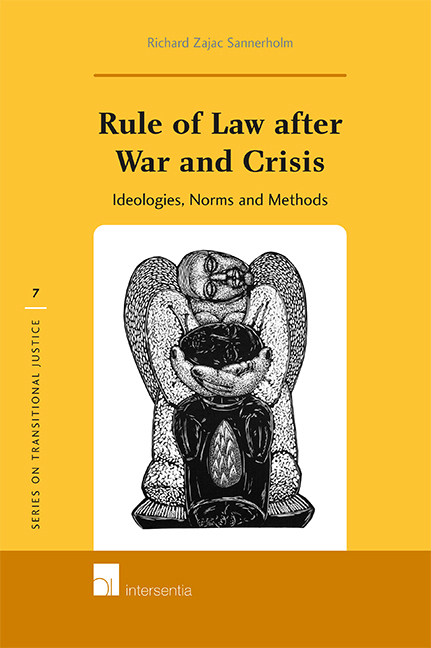5 - Institution Building
Published online by Cambridge University Press: 16 December 2020
Summary
INTRODUCTION
As discussed in the previous chapter, the viability of law reform and constitutional reform together depend on a number of factors, such as inclusion and the pragmatic consideration of host country ownership. Another essential circumstance is the creation of an adequate institutional framework that can implement, monitor and manage structural legal reforms meeting the needs of end-users, the state and international donors. The international community has identified the construction of sound institutions as something central to the rule of law, and institutional reform has remained a core objective since the early activities of the law and development movement.
The building of institutions, and judicial reform in particular, is regarded by many commentators as being the most difficult of reform areas in rule of law promotion in war-torn and crisis societies. Yet international actors often approach the topic as a technical or practical matter – that is, translated into refurbishing court-houses and prisons, and merely the upgrading of technology. However, the creation of institutions is, above all, a matter of enhancing capacity and changing behaviour, which is time-consuming and difficult, particularly since it involves changing procedures, mentalities and other often well-established institutional patterns and ways of working.
This chapter examines methods of international support in the strengthening of capacity and integrity of legal and administrative institutions after war and crisis. In particular, it analyses how issues of organising the courts and bureaucracy, the selecting and vetting of public officials, and capacity-building initiatives and how the newly made or reformed institutions are supported.
The difficulty of institutional capacity has in some cases led to an internationalisation of institutional reform, a topic also discussed in this chapter. More often than not, structural legal reform, constitutional or ordinary law, lacks effect because of weakness in the institutions set up to enforce them. Here, too, as in relation to constitutional and law reform, the political economy – that is, commitment and ownership – play vital parts in the implementation of rule of law reform, as well as the influences of international law, benchmarks and codes.
- Type
- Chapter
- Information
- Rule of Law after War and CrisisIdeologies, Norms and Methods, pp. 153 - 210Publisher: IntersentiaPrint publication year: 2012

